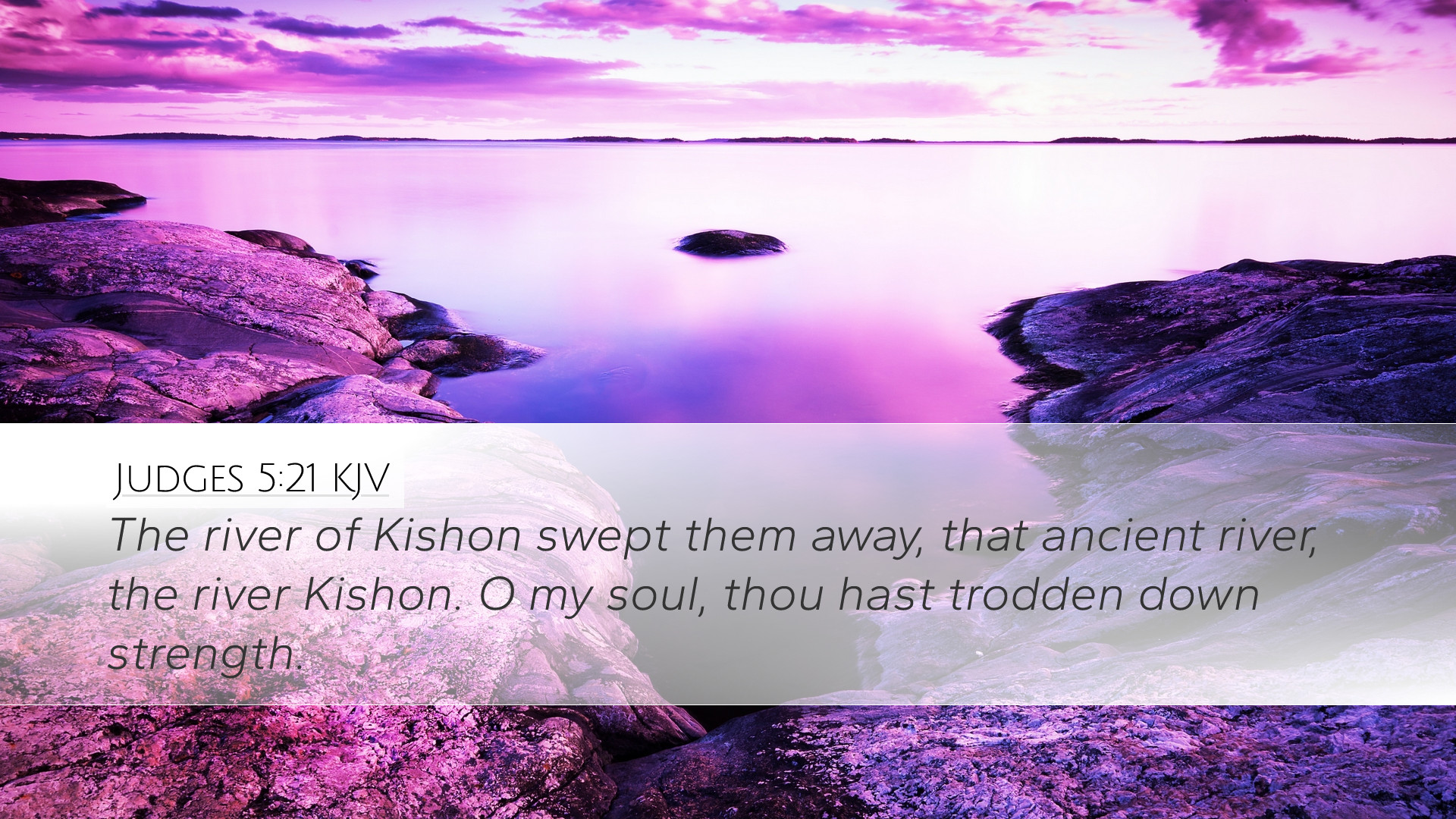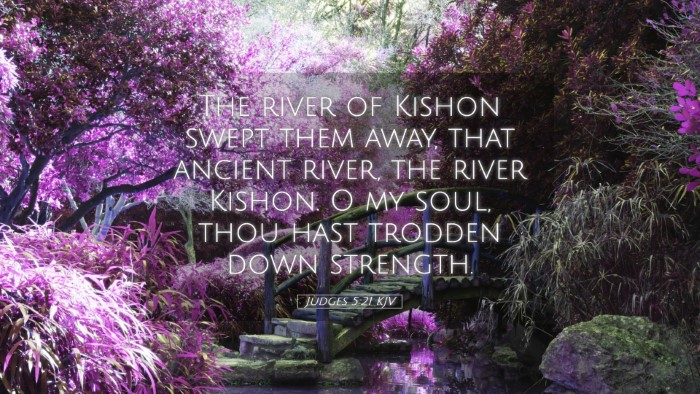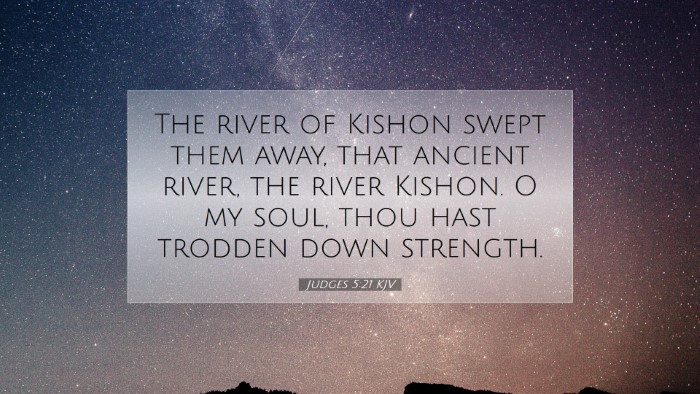Commentary on Judges 5:21
Judges 5:21 states: "The river of Kishon swept them away, that ancient river, the river Kishon." This verse is part of the Song of Deborah, a poetic reflection on the victory of Israel over its enemies, particularly the Canaanites led by Sisera. The verse highlights a miraculous event that plays a significant role in God's deliverance of His people and serves as a reminder of God’s sovereignty in battle.
Context and Historical Background
The setting of this verse is during the period of the Judges, a time characterized by cycles of sin, oppression, repentance, and deliverance in Israel. Deborah, a prophetess and judge, emerges as a key figure during this tumultuous time. The chapter describes the military campaign against Barak and Sisera, culminating in Israel’s victory. The Kishon River, referenced in this verse, becomes a symbol of divine intervention.
Insights from Public Domain Commentaries
Matthew Henry's Commentary
Matthew Henry emphasizes the significance of divine intervention reflected in the Kishon River sweeping away the enemies of Israel. He notes that God can use natural elements to fulfill His purposes and that this event illustrates His power over creation. Henry reflects on how God fights for His people and that victory comes from Him, not human might.
Albert Barnes' Notes on the Bible
Barnes offers a historical perspective on the Kishon River, indicating its geographical importance in the battle against Sisera. He elaborates on the river's potential for flooding, suggesting that the Canaanite army, accustomed to fighting in dry conditions, was caught unprepared by the sudden change. Barnes connects this phenomenon to God’s strategic timing and intervention in granting victory to His people.
Adam Clarke's Commentary
Clarke provides a detailed exegesis of the term "ancient river," reflecting on the long-standing presence of the Kishon in Israel’s narrative. He discusses the theological implications of water as a symbol in Scripture, highlighting its dual nature of both destruction and life. Clarke stresses the covenant relationship between God and Israel and how this victory reinforces that bond by showcasing God's faithfulness and power.
Theological Themes
- Divine Sovereignty: The sweeping away of Sisera’s army illustrates God’s control over nature and history. It affirms the belief that God is actively involved in the affairs of His people.
- Deliverance and Salvation: This verse signifies God's agency in providing deliverance. The victory is not merely attributed to Israel’s military prowess but to God’s intervention, reinforcing His role as the redeemer.
- Judgment upon Enemies: The imagery of the Kishon River serves as a reminder that God judges those who oppose His people, fulfilling the principles of justice found throughout the Scriptures.
- The Importance of Remembrance: The song itself is a mnemonic device reminding the people of Israel about God's past actions and victories, reinforcing their faith as they face future challenges.
Application for Today
For modern readers, the narrative encapsulated in Judges 5:21 serves as a profound lesson in trusting God during difficult circumstances. Leaders and believers are encouraged to remember that God fights for them, and they can rely on His strength rather than their own. The historical event also calls for reflection on the nature of evil and the justice of God in confronting oppression.
Conclusion
Judges 5:21 stands as a powerful testament to God's active role as a protector and deliverer of His people. The insights drawn from Matthew Henry, Albert Barnes, and Adam Clarke converge to inform a deeper understanding of this text. It invites pastors, students, theologians, and scholars to explore God’s mighty deeds and remember His faithfulness in their personal and communal lives.


